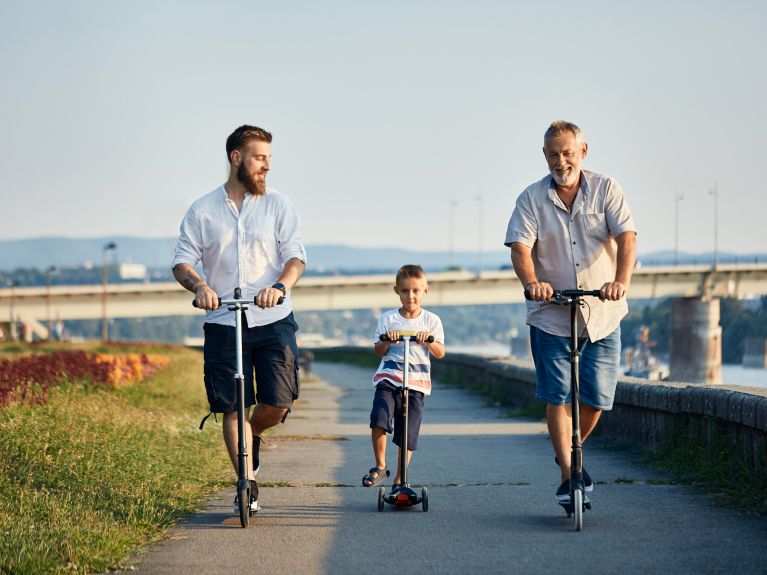More elderly people and less young ones
Find out here how many young people there are in Germany and when the baby boomers will be retiring.

In Germany in 2021, a new-born baby girl has a life expectancy of 83.4 years, and a baby boy will average 78.6 years. Both ages are higher than ever before. But how large are the different generations in Germany?
Less young people
According to the Federal Statistical Office, at the end of 2020 the population in Germany totalled 83.2 million people. Of these, 8.4 million were between 15 and 24 years of age. This means that Generation Z, in other words those born from the mid-1990s onwards, represented only 10.1 of the population. The number of people in this age group has never been so low since the beginning of statistical records in 1950. The picture looks quite different with the generation of the baby boomers who were born between the mid-1950s and the mid-1960s. In the years 1982, 1983 and 1984 young people represented 16.7 per cent of the population.
Increasing numbers of centenarians
In 2020 there were 20,465 people aged 100 or more in Germany – an increase of 3,523 over the previous year. The age group of 100 and above has never been so large. At least 80 per cent of these very old people were women.
The number of pensioners is growing
According to calculations by the Federal Statistical Office the number of people aged 67 or more (the official retirement age in Germany) will rise to an estimated 20 million by the year 2035. That would be an increase of 22 per cent compared with 2020 when this figure was 16 million. At the same time, the group of people aged between 20 and 66 (those of working age) is declining. The reason is that the strongly represented groups of baby boomers will be retiring in the 2020s. In order to compensate for this Germany will need migrants.
New generations, new names
Changes in the population are accompanied by changes in names, and each generation has its favourite first names. The Association for the German Language has been monitoring the most popular first names since 1977. At that time the leading names for girls were Stefanie, Christina/Christine and Sandra, and for boys they were Christian, Michael and Stefan. In 2020 the most popular first names for girls were Emilia, Hanna/Hannah and Emma, and for boys they were Noah, Leon and Paul.
You would like to receive regular information about Germany? Subscribe here:


